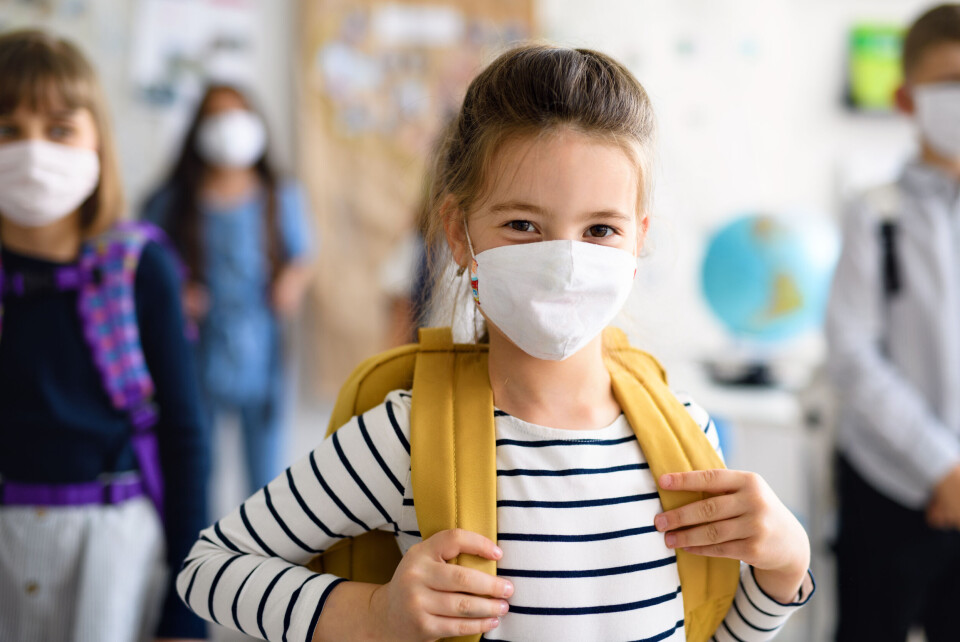-
Germany to prolong EU border checks: how travel from France is affected
Checks at land borders will take place until at least September 15, 2026
-
Floods in France: emergency measures underway amid ‘historic’ conditions
Gironde, Lot-et-Garonne and Maine-et-Loire among worst-hit with red warnings in place
-
Mardi Gras: 12 traditional carnival sweet treats to try in France
Gaufres, bugnes, merveilles and more
French university’s travel-size breath test detects Covid in minutes
Two researchers in Nîmes have patented a personal breath test for fast, comfortable and accurate testing in three minutes. It is hoped it may be especially useful for testing in schools

Two researchers at the University of Nîmes have developed a personal Covid breath test that is able to provide users with accurate results in three minutes.
The electronic device, called the eBAM, works by detecting Covid particles in your breath, and is easy, painless and non-invasive to use and initial results show it to work even better than antigen tests.
Used in the same way as a breathalyser, the eBAM is designed to be convenient for users, owing to its handy travel-size and more comfortable than PCR or antigen tests which require a swab to be inserted up the person's nose.
"We've miniaturised everything. It is portable, so you can carry it with you," Valérie Compan, research professor at the University of Nîmes and co-inventor of the detector, told FranceInfo.
Dépister le Covid-19 par le souffle : une solution innovante développée par une chercheuse de @unimesfr ! Bel exemple de l'excellence de la recherche dans nos territoires ! Bravo à Valérie Compan pour cette formidable initiative. pic.twitter.com/oA60uFAf0A
— Frédérique Vidal (@VidalFrederique) September 2, 2021
The user blows into a 'whistle' inside which virus particles are projected against a specially-treated membrane, creating a reaction.
The whistle isinserted three minutes later into a small electronic box to complete the analysis in a few seconds, with the result being shown on a screen.
Frédérique Vidal, Minister of Higher Education, Research and Innovation, congratulated Prof Compan on the ‘innovative solution’ after meeting with her last week.
More reliable than Covid antigen tests
Prof Compan developed the device in tandem with Sandie Choquart, of the CNRS in Montpellier and professor of biology and physiology at the University of Nîmes.
A patent has now been filed, 14 months after work on the prototype began, and the university set up a start-up company to finance the prototype.
The prototype costs €690 and is not yet completely portable, however the aim now is to make a commercial version suitable for carrying in a user's bag, that would probably be plugged into their mobile phone. The aim is for it to be so easy to use a person could check they are not positive for Covid at any time.
The team is now seeking investors to help put the device eBAM device into production as university funding along with not be enough.
The breathalyser has so far been successfully tested on over 150 people in Covid testing centres, where its effectiveness was compared with the commonly-used antigen tests.
The results are said to have proved even more reliable than antigen tests, which are widely used in France, including for the health pass. The researchers report that it was more 'precise' and had correctly picked the virus up in some cases where an antigen test had not detected it. The new test is also able to calculate an infected person's 'viral load' – the amount of the virus that is present.
Regional health agency l'Agence Régionale de Santé d'Occitanie is said to be following the project with interest.
Even so, Prof Compan said further tests will be required so as to obtain approval for use from the medical safety agency Agence nationale de sécurité du médicament.
Widepread testing in schools is part of the government's current Covid strategy and it is hoped that the tool could be especially useful for this.
Related articles
Covid tests for travel no longer free in France from October 15
What happens if there is a Covid outbreak at my child's French school?
























